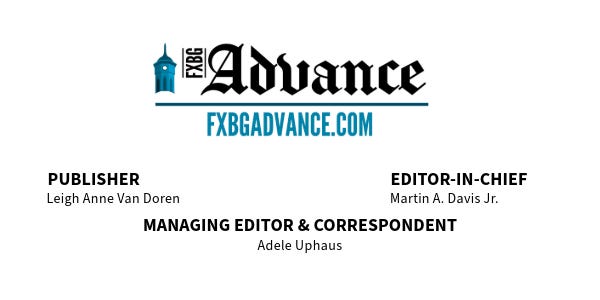
By Jay Brock
GUEST COLUMNIST
In this presidential election year, when there is significant discontent with our health insurance system—unaffordable healthcare is second only to inflation of the issues most voters want the candidates to talk about, and 3 out of 4 Americans across the country worry about being able to pay their medical bills if they get sick—it looks like both Vice President Kamala Harris and former President Donald Trump are struggling on how best to resolve the most important problems that have plagued our current system for decades.
Unaffordable costs; staggering numbers of dollars ($600 billion each year – see here and here and here) wasted on needless administrative costs; the control, via prior authorizations, outright denials of care, or restricted networks of providers, that the largely for-profit health insurance industry has over our healthcare; and the unconscionable number (70,000 – see here and here) of Americans who die each year because they cannot afford timely medical care—these are some of the major roadblocks that must be overcome.
What is the best path to make sure everyone gets affordable healthcare in America?
Should reform be incremental, or sweeping?
Is there even a role for the Affordable Care Act?
Let’s consider some context here.
We spend on average twice as much per person on our healthcare than the average costs of all other advanced nations—and tend to get worse results. Almost 100 million Americans are either uninsured or “underinsured” (because of onerous out of pocket costs, many people cannot afford to use the insurance they have. What good is insurance you cannot afford to use?). Some 100 million Americans are carrying a total of $200 billion in medical debt.
Why all these problems?
The major flaw in today’s American health insurance system is that it is based upon America’s private health insurance industry, because the industry itself has two major drawbacks. One is that, rather than being primarily concerned with the health of its “covered lives,” your for-profit health insurance company has a primary fiduciary responsibility to its shareholders to deliver profits. This results in an irreconcilable conflict of interest—profit versus healthcare—not an ideal situation when it comes to your health, or your family’s. The other is that the health insurance company is a very expensive middleman, whose business model is to collect as many of our healthcare dollars as it can, and then, in order to increase profits, spend as few of those dollars on our healthcare as it can get away with.
Unfortunately for someone who prefers to reform health insurance using the Affordable Care Act, the ACA is based on the health insurance industry, the poster child of a middleman.
The ACA may be providing more Americans with health insurance, but that doesn’t mean that the ACA, with out-of-pocket costs that can reach nearly $19,000 for a family this year, is all that affordable.
And the ACA was never intended to be the path to universal affordable healthcare. Aside from those unaffordable out-of-pocket costs, it’s too expensive to administer, and the middleman health insurance company exists only to take its cut of our healthcare dollar—as with any private insurance company, its role can be taken over with a government-funded plan for a small fraction of the cost.
In fact, a government-funded plan such as Single Payer Medicare for All, a vastly improved version of Traditional Medicare, solves all the above problems: No more expensive insurance industry middleman that must be accommodated; 100% coverage for all medically necessary care, so no additional out of pocket costs; free choice of any provider; no more pre-authorizations or denials of care based on the insurance company need for more profit; contributions based on income, not an arbitrary monthly premium; no more deferrals of care because it’s unaffordable.
Multiple studies show that Medicare for All could cover everyone and still save each year hundreds of billions of the healthcare dollars we spend now (See here, here, and here). Yes, we already have the money for Medicare for All—we just don’t spend it wisely.
Should healthcare reform be incremental, or swift?
It depends on the political will to either save those wasted hundreds of billions of dollars—and tens of thousands of lives—now, or simply to accommodate the health insurance industry’s need for ever-higher profit. That should not be a hard choice.
Medicare for All will significantly improve how we fund our healthcare. Some critics call such a change “radical”. That is unfortunate. We are the radical outlier of all the world’s advanced nations, the only one—because of how we now pay for our care—lacking healthcare that is both universal and affordable.
Universal affordable care should be a goal that is nonpartisan and bipartisan. Unfortunately, the ACA won’t get us there. Let’s put the interests of our healthcare first and adopt Medicare for All now.





Local Obituaries
To view local obituaries or to send a note to family and loved ones, please visit our website at the link that follows.

Support Award-winning, Locally Focused Journalism

The FXBG Advance cuts through the talking points to deliver both incisive and informative news about the issues, people, and organizations that daily affect your life. And we do it in a multi-partisan format that has no equal in this region. Over the past month, our reporting was:
$8 a month supports great journalism
- First to report on a Spotsylvania School teacher arrested for bringing drugs onto campus.
- First to report on new facility fees leveled by MWHC on patient bills.
- First to detail controversial traffic numbers submitted by Stafford staff on the Buc-ee’s project
- Provided extensive coverage of the cellphone bans that are sweeping local school districts.
- And so much more, like Clay Jones, Drew Gallagher, Hank Silverberg, and more.
For just $8 a month, you can help support top-flight journalism that puts people over policies.
Your contributions 100% support our journalists.
Help us as we continue to grow!
Support FXBG Advance for $8 a month







